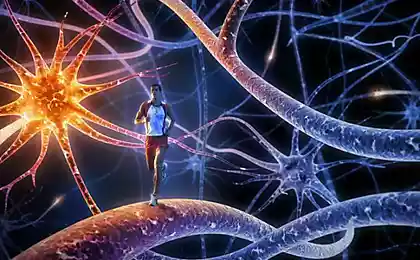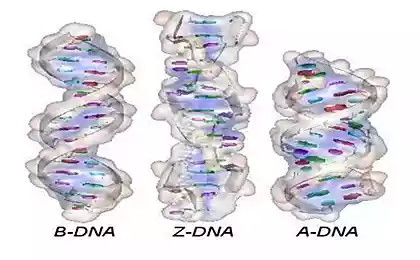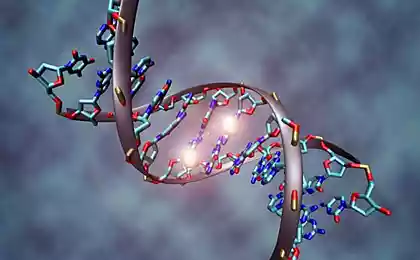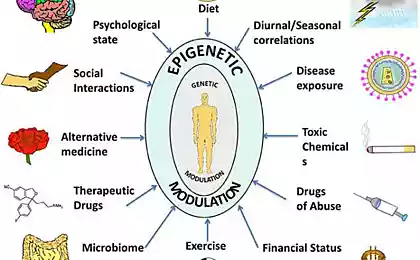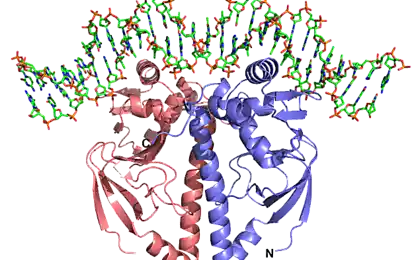442
We are not puppets on a DNA spiral: Helen Fisher on the properties of temperament

Professor, Department of anthropology at Rutgers University and author of the book "Why we love" by Helen Fisher believes that people are biologically predisposed to think and act in accordance with your specific model: the properties of temperament. In her essay, she argues that the better we understand the properties of his personality, the conscious will be able to make decisions about our lives. "I'm large, I include lots of different people," wrote Walt Whitman. I've never met two people are alike. I have an identical twin and we are identical. Every person is a individuality, it has a different set of thoughts and feelings which influence his actions. But there are models of personality: people Express different styles of thinking and behavior, psychologists call it temperamental. I propose the concept of properties of temperament as another tool of knowledge.
The identity consists of two fundamentally different types of traits of the psyche: those who belong to "nature," and those who belong to the "temperament". The basis of traits related to character, lies experience. Your kids games, interests and values of your family, how people from your environment to Express love and hate that your friends think is rude and what is polite, what they worship, what to sing, what are you laughing at, how to earn money and relax, the numerous cultural influences to build your unique set of traits. By contrast, in the psyche is temperament, which includes biologically inherent properties that contribute to the way you feel, think and behave. The Spanish philosopher josé Ortega y Gasset gave the following definition of man: "I am I and my surroundings ". Temperament is the "I," our Foundation.
Each of us is a different combination of these four basic types of temperament. But we all have our own unique identity. Of course, people are subjected to various influences, but we do not clean boards on which the environment writes the individual.It is revealed that the identity of the person from 40% to 60% accounted for by the features of temperament. They are inherited virtually unchanged throughout life and are associated with a specific set of genes and/or hormone or neurotransmitter system. Moreover, our temperament traits are combined in groups, each related to one of the systems of the brain: associated with dopamine, serotonin, testosterone and estrogen/oxytocin. Each group of traits forms the specific properties of temperament.
For example, certain allelic genes in dopamine system of the brain associated with exploratory behavior, arousal, the search for experiences and adventures, susceptibility to boredom and poor braking. With the changes in dopamine system of the brain is associated enthusiasm and low level of self-awareness, increased energy and motivation, physical and intellectual development, cognitive flexibility, curiosity, idea generation and verbal and non-verbal creative potential.
The set of features associated with the serotonin system of the brain, includes sociability, low level alarm, high on the extroversion scale and low on a scale of "No close friends", good mood, religiosity, conformity, law-abiding, concrete thinking, self-control, sustained attention, weak desire for novelty and geometric and arithmetic ability.
Increased attention to detail, improved focus, limited interests — these are some of the characteristics associated with level of prenatal testosterone. Also, the activity of testosterone associated with emotional containment, emotional breakdowns (usually bouts of extreme anger), social dominance and boldness, and reduced social sensitivity and high spatial and mathematical abilities.
Finally, the traits associated with estrogen and oxytocin include fluency in foreign languages and other linguistic skills, capacity for empathy, care, the desire for adaptation to the society and other social skills, contextual thinking, imagination and intellectual flexibility.
Each of us is a different combination of these four basic types of temperament. But we all have our own unique identity. Of course, people are subjected to various influences, but we do not clean boards on which the environment writes the individual. The curious child is curious with age, although it may change what makes him curious. Stubborn people stay stubborn, disciplined people are disciplined, and obedient men and women tend to remain docile.
We are able to act beyond our nature, but this behavior is exhausting. People are biologically predisposed to think and act in accordance with your specific model: the properties of temperament. How to use this concept about the properties of temperament in practice? Since we are social creatures, a deeper understanding of who we (and surrounding) are such, can provide a valuable tool for understanding, attraction, persuasion, condemnation, reward, and love of other people: from friends to world leaders.
We are not puppets on a DNA spiral. For example, those who are biologically predisposed to alcoholism, often stop drinking. The better we understand their biology, the better we will understand how culture affects our biology.Take note. The owners pronounced tendency to seek novelty are unlikely to be good at his job, suggesting a rigid schedule requiring strict adherence to deadlines. Cautious by nature, men are unlikely to feel comfortable in the positions where you want to draw. Strong, rigid, high testosterone is not very suitable for those who are not able to quickly decide and get going. And those who have dominated the high levels of estrogen, compassionate and caring, are unlikely to be good at activities that require to be ruthless.
Managers could form a Board of Directors consisting of the four basic types. Universities could accommodate novices with roommates with similar temperament, and not origin. Perhaps teams in business, sports teams, teachers, students interacted more efficiently if they are either similar thought, or would have different cognitive skills. And of course, we could more effectively interact with their children, partners, colleagues and friends. We are not puppets on a DNA spiral. For example, those who are biologically predisposed to alcoholism, often stop drinking. The better we understand their biology, the better we will understand how culture affects our biology.
Source: theoryandpractice.ru



